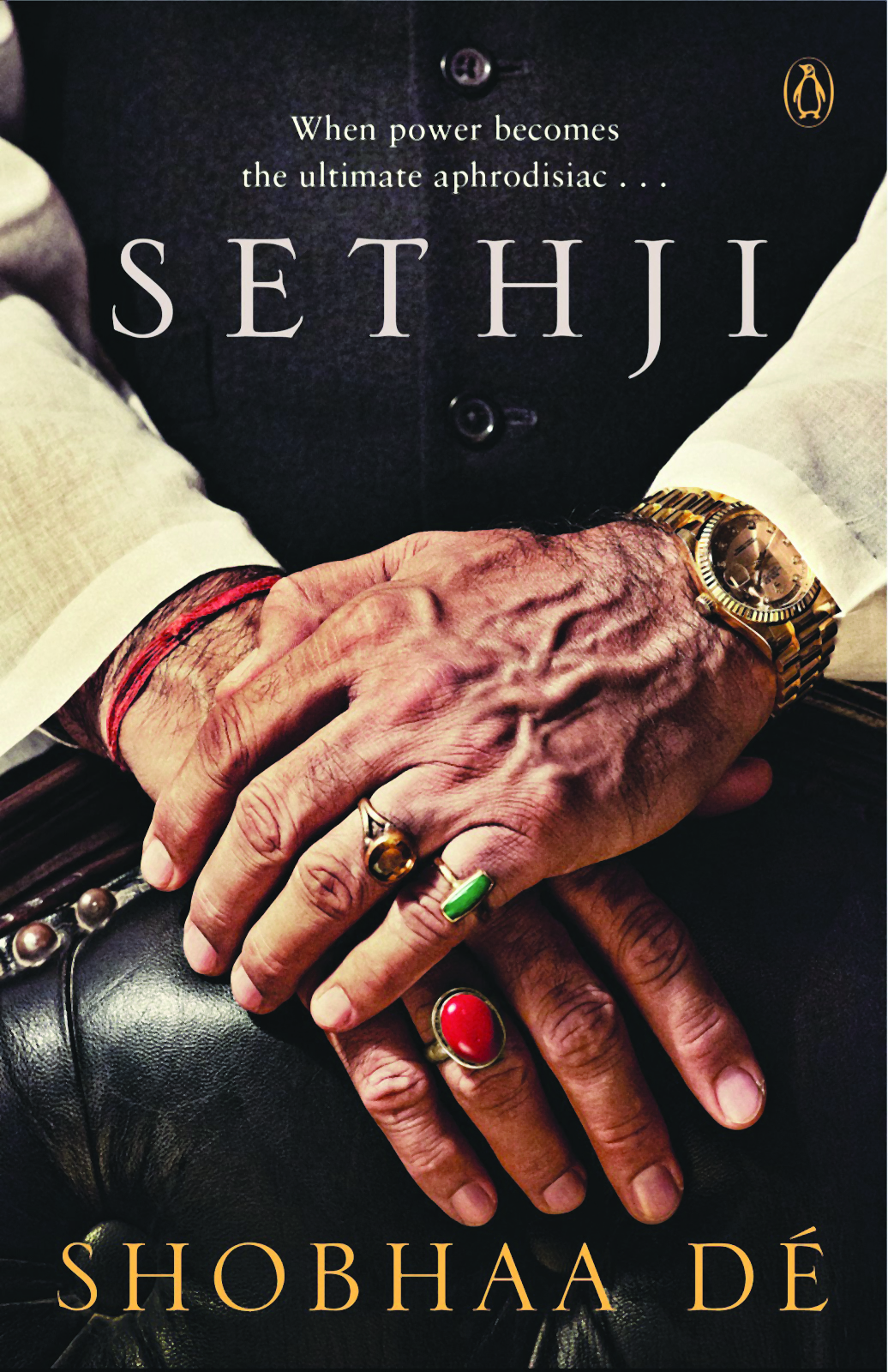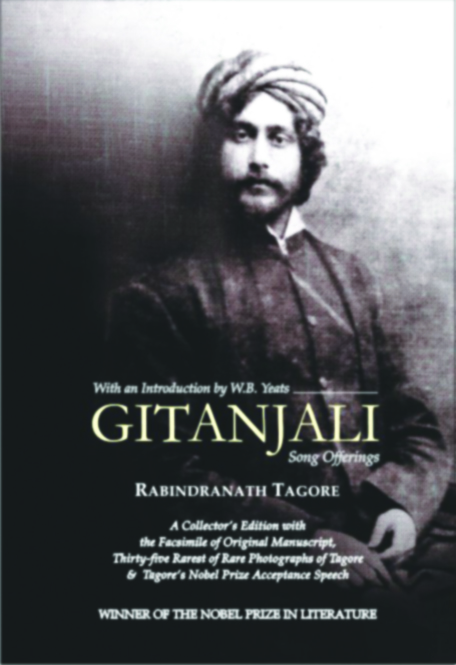 Sethji by Shobhaa De; Penguin Books; Price: Rs.250; 287 ppIn the preface to this high octane exposé of Indian politics, Shobhaa De, the celebrated founder-editor of Stardust and Celebrity magazines, is described as the author of 17 books including bestsellers such as Socialite Evenings, Starry Nights, Spouse and Superstar India. Books authored by her include several non-fiction titles in which she comments upon the glitterrati, social taste and custom and even politics. That being so, one expected a novel of maturity and insight rather than the breathless, low-brow prose of a writer hell-bent upon shocking with sensationalism.
Sethji by Shobhaa De; Penguin Books; Price: Rs.250; 287 ppIn the preface to this high octane exposé of Indian politics, Shobhaa De, the celebrated founder-editor of Stardust and Celebrity magazines, is described as the author of 17 books including bestsellers such as Socialite Evenings, Starry Nights, Spouse and Superstar India. Books authored by her include several non-fiction titles in which she comments upon the glitterrati, social taste and custom and even politics. That being so, one expected a novel of maturity and insight rather than the breathless, low-brow prose of a writer hell-bent upon shocking with sensationalism.
First the plot. The centrepiece is the eponymous Sethji, a fleshy rustic from Uttar Pradesh who heads the Azaad Bharat Socialist Party (ABSP), which with its 40 MPs is propping up the government in New Delhi. How Sethji built his party, nurtured his vote bank(s) and engineered ABSP into a formidable political force is not recounted. Like many politicians, at some point in his life, Sethji would have been an idealist or at the very least, a champion of the down-trodden or marginalised, and as such, acquired representative power. All we are told in a few lines narrated by his barber right in the beginning of the novel is that he was born into “one of the lowest rungs of the complex caste system” in Uttar Pradesh, and has since acquired “unlimited power, incalculable wealth”.
The narrative begins with the super-rich Sethji’s spoilt younger son being accused of rape and murder of a north-eastern teenage girl. Sethji is annoyed, but being the typical male chauvinist patriarch, he rationalises that boys will be boys and it is his duty to get his son out of the country asap. Curiously despite his reportedly unlimited power in Delhi, for this he requires the assistance of Arun Mehta, a wealthy businessman, who at the time is bidding for the country’s largest ever highways project which is Sethji’s to dispense. Mehta agrees to get Suraj, the rapist son, to Dubai in return for being assured the prized contract. But a Mumbai-based business tycoon Jaiprakash Jethia, is also in the fray for the contract. And he has the Bhau (‘Brother’), the powerful, regional sub-nationalist politician who together with his two sons controls Mumbai, the nation’s commercial capital (and Bollywood), in his corner. Any resemblance to the late Bal Thackeray is purely coincidental, of course.
If Bhau has his two sons, Sethji has Amrita — his sexy and smart daughter-in-law who is the amoral heroine of this novel. Amrita is married to Sethji’s weak and feckless older son Srichand, who is despised by his wife who had a premarital affair with MK, a handsome Muslim college mate with whom she is still in love. The younger son, who is in trouble from page 1, is killed off-screen in Dubai. Therefore the mantle of supporting Sethji devolves upon Amrita who is not averse to coupling with her father-in-law in the larger cause.
The plot thickens when a plan hatched by Bhau to topple Sethji from the leadership of ABSP and replace him with Kavitaji, a dissident leader of the party (who required Rs.5 crore for the purpose), fails. The contract is about to be awarded to Mehta, and Jaiprakash who is like Bhau’s third son, despite being “born into immense wealth” and “taking money for granted”, is hysterical. Therefore Sethji is kidnapped by Bhau’s goons and airlifted to Mumbai. To cut the melodrama short, Sethji is rescued by — who else but — Amrita and the long-lost MK, who miraculously appears on the scene when a mere feminine scream from Amrita prompts the driver and bodyguard ferrying a drugged Sethji and Amrita, to conveniently crash their car. MK rescues them and arranges the resuscitation and rehab of Sethji in a hospital in the lanes behind Mumbai’s Taj Mahal Hotel, where naturally he has a suite where the long-wronged Amrita can tryst with her true love. MK, with whom she had lost touch decades ago is a Harvard law graduate and — Shobhaa De’s world is small — legal counsel of Bhau and best friend of his younger son Aadesh.
But now with her husband of whom she rustles up some fond memories after he is assassinated by Bhau’s men and ditto her brother-in-law in Dubai, Amrita is a woman whose fury knows no bounds. Without much ado, she finds a retired encounter cop who for Rs.5 crore agrees to assassinate Bhau at the premiere of a Bollywood extravaganza, produced by his son. In De’s simple mind the possibility of the cop tipping off Bhau and earning Rs.10 crore, is unthinkable. Bhau is duly assassinated, and Amrita and Sethji who improbably persuades the Mumbai airport police that he is just a trader from Punjab, escape to Delhi even as Bhau’s men ransack Mumbai.
Meanwhile, for having delivered Sethji safe and sound in Delhi and in position to award the prized highways contract to Arun Mehta, MK negotitates a new job as head of Mehta’s European businesses and escapes with his family to Brussels. And back in Delhi, with both his sons dead, Sethji has none to turn to except Amrita with whom he negotiates a new contract: “for the exclusive use of her body” Sethji offers to nominate his heir as leader of APSB. The narrative ends with Amrita, after some token rationalisation mixed with self-pity, accepting the offer.
Admittedly the storyline of Sethji, even if educationally barren, is pruriently interesting and the characterisation deft. But strangely, not a single character in this novel with a cast of dozens is legitimately successful. De seems set in her belief that success cannot be attained without criminality or enjoyed without deviancy. Thus all her characters are either crooked or perverted, or both. Sethji is not averse to incest; his sons are an effeminate womaniser and rapist; Bhau is an ailing dictator and his sons are into starlets of both sexes; Arun Mehta is homosexual; Jaiprakash Jethia is involved with a promiscuous starlet; Bollywood is awash with starlet-prostitutes; MK too, despite his Harvard law degree, isn’t a law-abiding lawyer, but consigliere to Bhau. In De’s limited weltanschauung, success is synonymous with criminality and/or perversion.
The author’s cynical world-view raises the larger question of the role of writers, journalists and intelligentsia in the quasi and neo-literate societies of developing nations. Since De is an acknowledged “opinion-shaper” of national repute, she could have sharpened the narrative to educate, inform and entertain simultaneously. Instead, the corrosive immorality pervading the novel in which the evil are counterpoised by the marginally less evil, is degrading. And given the awareness that all fiction is supported by a bedrock of fact, impressionable minds would be led to believe that amorality is the precondition of success in politics.
Therefore in the final analysis, this is a debasing rather than entertaining and uplifting novel.
Dilip Thakore
Greatness revisited
 Gitanjali: Song Offerings by Rabindranath Tagore, bilingual edition, collated and edited by Tapati Mukhopadhyay and Amrit Sen, Rabindra Bhavana, Visva-Bharati, Santiniketan; Price: Rs.1,000; 373 pp
Gitanjali: Song Offerings by Rabindranath Tagore, bilingual edition, collated and edited by Tapati Mukhopadhyay and Amrit Sen, Rabindra Bhavana, Visva-Bharati, Santiniketan; Price: Rs.1,000; 373 pp
One hundred years of the life of Gitanjali, the collection of sublime poetry which won India’s celebrated poet, sage and philosopher Rabindranath Tagore (1861-1941) Asia’s first Nobel prize for literature in 1913, is celebrated in this collector’s edition. Published by Rabindra Bhavana, Visva-Bharati, Santiniketan — the university where Tagore’s manuscripts, letters, paintings and artefacts are preserved — this bilingual edition includes facsimiles of manuscript pages and correspondence with European poets and critics, rare photographs and contemporary newspaper clippings from its own archives.
The Song Offerings is an early instance of a transcreated work for which Tagore himself translated into English, 53 poems from the original Bengali Gitanjali and around 50 more from several of his other collections. In the propagation and circulation of Tagore’s poems in the West, William Rothenstein and William Butler Yeats played a pivotal role, while leading British academics corroborated the value of “the elemental thoughts of life and death, of home and children, and of the love of God’’, which came as a message of hope and sustenance to a spiritually parched European sensibility. To a world teetering on the brink of a World War, Tagore seemed to offer succour by invoking the ancient wisdom of the Orient — provoking deep sentiments of rest, serenity and infinite peace.
The response to Tagore’s poetry in the West was overwhelming, and between March and November 1913, ten editions of the book published by Macmillan were sold out. The popularity of the poems was also linked to the iconic status the poet had acquired in the West as a spiritual guru. In a telegram acknowledging the Nobel prize, Rabindranath, quoting a line from his own poetry, expressed “grateful appreciation of the breath of understanding which has brought the distant near, and has made a stranger a brother’’.
The reissue of Gitanjali (which has, incidentally, never been out of print) in its centenary year, underlines the durability of Tagore’s soul-stirring poetry, which even in these hi-tech times continues to forge bonds across cultures and stimulates brotherhood and humanism. This was acknowledged by Harold Hjame, the chairman of the Nobel Committee of the Swedish academy who cited “his profoundly sensitive, fresh and beautiful verse, by which with consummate skill, he had made his poetic thought, expressed in his own English words, a part of the literature of the West’’.
The historical juncture at which Tagore communicated his philosophy of universalism to the world coincided with the rise of militant nationalism in India. This social and political aggressiveness was countered by his liberal and expansive creed of integrating the diversity of the world — the viswa into Bharati, the sover-eign nation or modern India. It is this non-denominational religion of man which is the basis of the Gitanjali poems. Ideas about liberal universalism, cosmopolitanism and communitarianism continue to resonate in global politics, and Tagore’s writing is a rich source for exploring and reinforcing these inclusive values.
Richly illustrated and documented, and featuring the original introduction by Yeats, this edition places the text in its historical context and fully displays the versatile dimensions and depth of Tagore’s philosophy and the scope of its practice. This new edition also reaches out to Indian readers who cannot read Tagore in the original, and therefore reinforces positive sentiments of inclusion and integration within the subcontinent at a time when caste, community and linguistic particularisms are being cynically propagated by narrow-minded political parties and leaders.
“It was my songs that taught me all the lessons I ever learnt; they showed me secret paths, they brought before my sight many a star on the horizon of my heart,” wrote Tagore. His heart was unabashedly romantic, soul intensely spiritual, but his towering personality was also shaped by an intellect manifest in these poems which underline the brotherhood of man and universal values of humankind.
Jayati Gupta